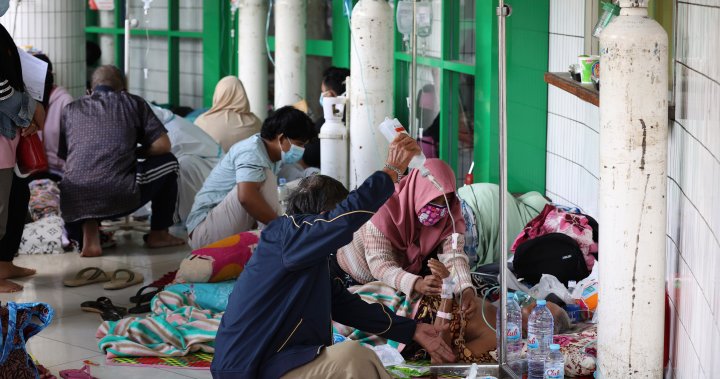
For decades, the worst for the pro-abortion-rights activist community was a Supreme Court decision to overrule the 1973 holding in Roe v. Wade, without which many states in the South and some in the West would likely enact bans on abortions. But new technology has complicated those issues, raising the possibility that a robust underground operation could continue to provide abortion pills to women seeking to terminate pregnancies at home.
Even before the Covid-19 lockdown prompted advocates to strengthen their networks, many patients were already self-managing their own abortions. One 2010 survey from the Guttmacher Institute found 2.6 percent of women saying they’d done so — a figure that many activists believe was understated at the time and has almost certainly grown as pills have become increasingly available.
Many patients are turning to online groups, some quite large: Aid Access, one of the most prominent online abortion providers, said it receives requests from almost 30,000 women per year.
And online groups say demand boomed during the pandemic. Aid Access’ requests jumped 27 percent from March 20 to April 11 last year, according to a paper in Obstetrics & Gynecology.
“We can handle more requests when needed,” said Rebecca Gomperts, Aid Access’ co-founder. In addition, patients can utilize a large, decentralized network of additional online pharmacies and providers, small and large.
In the event of an adverse Supreme Court decision, experts and activists say, it’s hard to predict how much supply could expand to meet patients’ needs in a post-Roe landscape. But the new restrictions on abortions imposed by states during the pandemic — combined with many women’s reluctance to get care in person for fear of contracting the virus — gave them a taste of how they might approach a post-Roe America.
Fear of contracting the coronavirus in clinics pushed people online, and often — due to federal and state restrictions — to underground services, involving internet forums, small internet groups offering assistance in-person and virtually, and mail deliveries from international pharmacies to out-of-the-way mailboxes.
/r/abortion, a Reddit forum devoted to providing advice about all types of abortion care, gained thousands of readers per month through December of last year, a moderator for the forum said, as readers dealing with canceled appointments tried to find new means of abortion — including online pharmacies that could ship pills from abroad. That trend will continue, the moderator predicted, if the courts allow further restrictions, up to and including the bans that would result if Roe v. Wade were overturned.
Even without a sweeping court ruling, current trends are likely to continue as GOP-controlled states erect ever-more-stringent abortion restrictions — even to the extent of providing “private rights of action” for ordinary citizens to enforce such restrictions against friends and neighbors, as Texas has done. Activists believe the effort to enlist average citizens in the fight against abortion is a direct response to fears that more abortions will be conducted at home, outside the gaze of the law.
“If Roe goes down — we hope it won’t — there are always going to be ways to access abortion,” said Elisa Wells, a co-founder of Plan C, an organization that connects users to abortions, including providing information of the quality of medications from online pharmacies. “Plan C included, we’re already working on alternative ways to access the pills.”
During the pandemic, help lines were clogged with women are trying to determine how much legal risk they would face if they used abortion pills in ways that violated state restrictions on at-home abortions.
If/When/How, a group providing legal services to abortion patients, said it was answering 10 times the usual number of weekly calls to its help line by the end of the year.
“The questions we receive largely fall into the bucket of general legal rights and the specific legal risks of self-managing abortions with pills,” said Rafa Kidvai, who directs the group’s legal defense fund, a new effort to prevent prosecutors charging patients for conducting at-home abortions.





